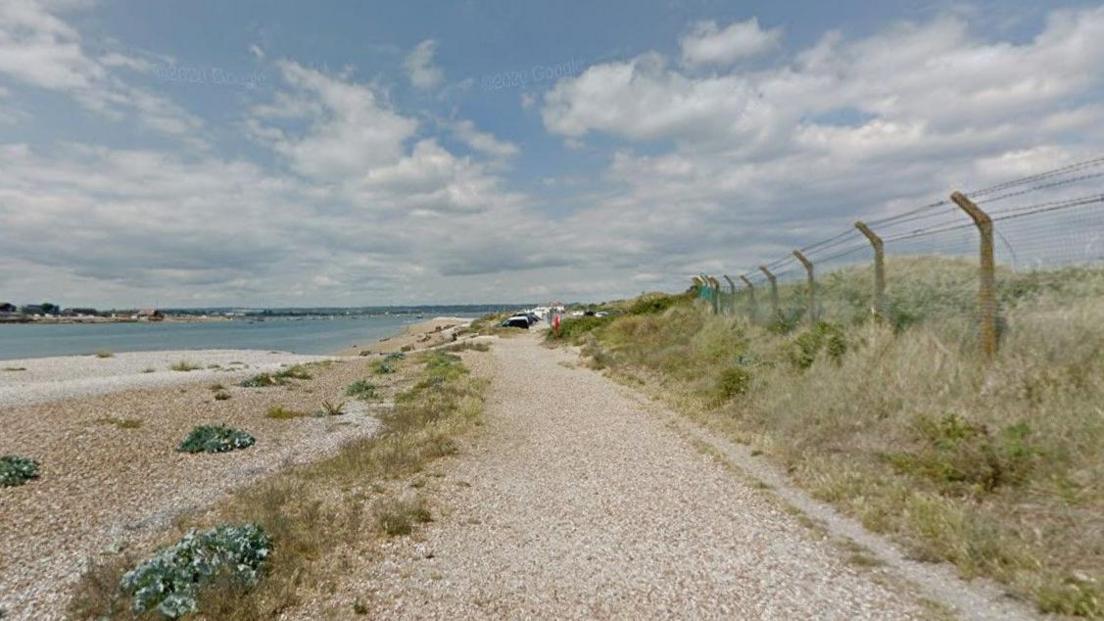Beach pollution blamed for dog's death by owner

Percy had to be put to sleep a day after eating the waxy, diesel-smelling substance on Hayling Island beach near the Ferry Boat
- Published
A woman has urged dog owners to be on their guard after her pet had to be put to sleep a day after eating a "diesel-smelling substance" on a beach.
Emily Bradley-Shaw was walking Percy on Hayling Island beach on 11 November when he ate a pale, waxy substance.
She said he became seriously unwell minutes later and was taken to the emergency vet hospital. After tests revealed the substance was in his lungs and he would not recover the following day "he was euthanised with our family present".
Havant Borough Council said it was alerted to the substance at Ferry Point by the Environment Agency. It said an inspection found what appeared to be "sewage-related fat masses" it cleared two days later.

The council said "sewage-related fat masses" were found on the beach
Miss Bradley-Shaw, 34, said Percy, a seven-year-old Portuguese Water Dog had rubbed his face in the sand and started being sick and coughing about 15 minutes after he ate the substance which she said he refused to drop.
She said, Percy who had no known health conditions and was a very healthy dog, "despite treatment deteriorated rapidly and was placed on a ventilator due to suspected aspiration pneumonia".
Warning others of the dangers, of the potential pollution incident, she said "I would hate for someone to be going through what I am going through.
"He was very much a character, loved everyone he met. He brought so much joy to life and I will miss him terribly. We had such a special bond... I always joked I was his emotional support human but really he was my emotional support animal."
She added an autopsy was being carried out to identify the substance he ingested.
The council said it would continue to monitor the beach "so that any further pollution incidents can be appropriately dealt with".
"However, during high tides and after rain especially, we would advise dog walkers to exercise vigilance, especially if their dog is off-lead, as pollutants can be dangerous and potentially fatal to their pets.
"Palm oil in particular poses a significant risk to dogs," it added.
Palm oil often appears as white, yellow or orange waxy lumps and may smell like diesel.
The council urged dog owners to contact a vet immediately if their pet might have eaten it.
Get in touch
Do you have a story BBC Hampshire & Isle of Wight should cover?
Related topics
More from the BBC
- Published1 day ago

- Published1 day ago
